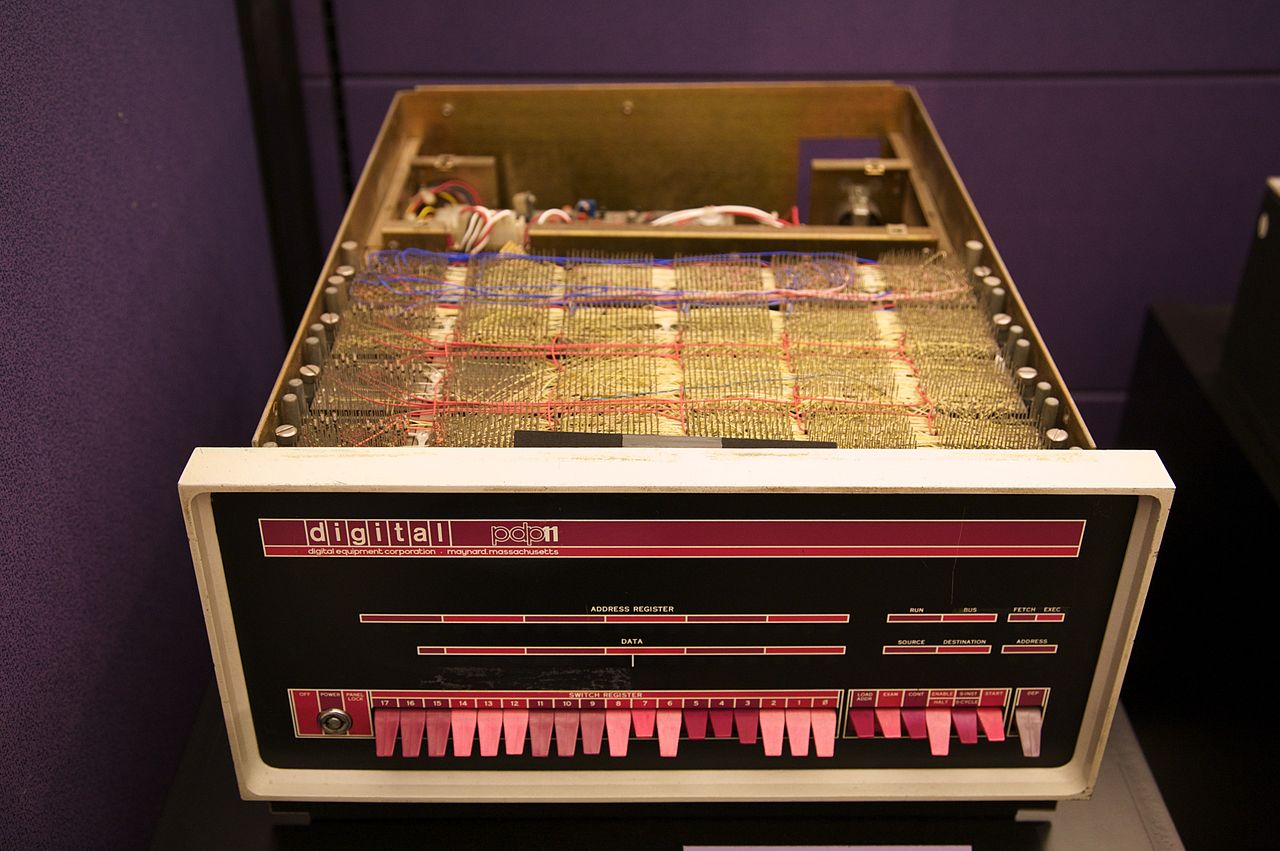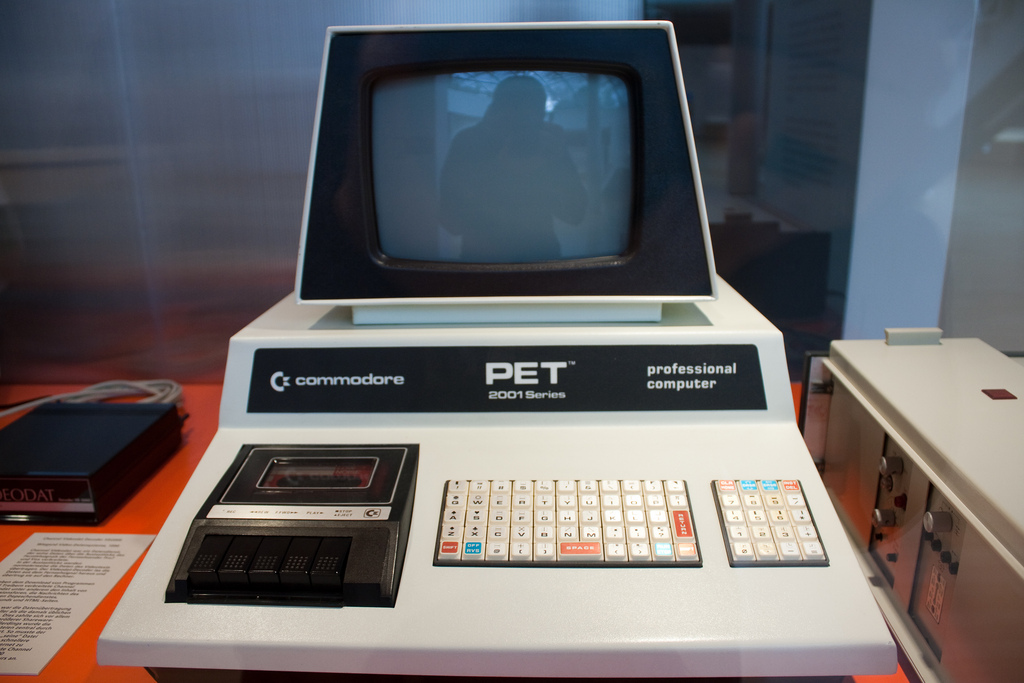80s computer emulator in browser
PCjs Machines - an emulator of computing systems from 1970-1990. It works in a normal browser. We tell you how remarkable the project is and what kind of machines are in its library. / photo Todd Dailey CC BY-SA / PDP-11 at the Museum of Computer History

PCjs Machines appeared in 2012 - it was founded by Seattle programmer Jeff Parsons. He wanted to help people understand how the first computers worked, and give them the opportunity to "play" with various configurations of these machines.
Initially, the project was conceived as a kind of backup. Jeff has the Ohio Scientific Challenger 1P at home , and he created his emulator in case the physical device crashes. Later, the “collection” was supplemented by other computers.
PCjs Machines emulators are written in JavaScript. To run them, you do not need to install additional plugins. If desired, emulation can be run on your own web server or offline: instructions are available in the README fileon github. The source code of the project can also be found there - it is distributed under the GPLv3 license .
Most emulators recreate 1980s PCs. The list of supported systems includes PC8080, PCx86. PCjs Machines also offers PDP-10 and PDP-11 mainframe emulators and Texas Instruments programmable calculators .
Other famous games on the list are Wolfenstein 3D , Wizardry I, and the educational Oregon Trail .
In the list of software there are quite interesting instances, for example Norton Utilities for DOS. This is a set of utilities that includes a program for recovering Unerase files. According to Jeff Parsons, despite the popularity of Norton Utilities, it was difficult to find the first versions of the software. Now on PCjs Machines , NU3.0 (and higher) is available from 1984, but the author of the project plans to find earlier versions to save them for future generations.
The author seeks to recreate the experience of working with computers as accurately as possible, therefore in the “assemblies” all, even not the most pleasant features of the interface are reflected. For example, due to the fact that Challenger 1P computers were connected to teletypes , it was not possible for devices to erase printed characters. This feature is not present in the PCjs Machines simulator.
Using the emulator on mobile devices creates a number of inconveniences - some functions of virtual machines are called via keyboard shortcuts. For example, a combination of Ctrl and Scroll Lock. For such cases, Jeff Parsons added on-screen keys and alternative shortcuts: Ctrl - Scroll Lock replaced by Ctrl - Delete.
Among the analogues of the PCjs Machines project, MAME (Multiple Arcade Machine Emulator) can be distinguished . Initially, it was devoted to the creation of gaming machine emulators, but in 2015, MAME was combined with MESS - its goal was to simulate the operation of personal computers.

/ photo Milestoned CC BY
Now the common library MAME and MESS includes more than two thousand different virtual machines. Among them are vintage computers Altair, Commodore, Apple, Sinclair and IBM. To work with emulators, just install the program from MAME and select the desired machine. Like PCjs Machines, the project works on a non-profit basis, and the source code is open to all.
Second Initiative - VICE(Versatile Commodore Emulator). The project has existed since 1993 and is engaged in the conservation of software for Commodore computers: VICE includes emulators of models C64, VIC20, C64DTV, C128, PET, PLUS4 and SCPU64. A list of available programs for these computers can be found on the project website. As with MAME, additional software is required to work with VICE.
All of the above projects for the development of emulators are actively developed and updated by enthusiasts. And since all these initiatives are open, everyone can contribute to preserving the history of software.
A couple of articles from the First Corporate IaaS Blog:
And the latest posts from our Telegram channel:

What is PCjs Machines
PCjs Machines appeared in 2012 - it was founded by Seattle programmer Jeff Parsons. He wanted to help people understand how the first computers worked, and give them the opportunity to "play" with various configurations of these machines.
Initially, the project was conceived as a kind of backup. Jeff has the Ohio Scientific Challenger 1P at home , and he created his emulator in case the physical device crashes. Later, the “collection” was supplemented by other computers.
PCjs Machines emulators are written in JavaScript. To run them, you do not need to install additional plugins. If desired, emulation can be run on your own web server or offline: instructions are available in the README fileon github. The source code of the project can also be found there - it is distributed under the GPLv3 license .
Which machines are "supported"
Most emulators recreate 1980s PCs. The list of supported systems includes PC8080, PCx86. PCjs Machines also offers PDP-10 and PDP-11 mainframe emulators and Texas Instruments programmable calculators .
The project website has simulators not only computers, but also individual games and programs. Many of them were popular at the time and have high cultural value.
For example, there are Infocom games on the site , in particular, the first commercial text quest Zork . The product was a hit in the 80s - more than 300 thousand copies were sold.
Other famous games on the list are Wolfenstein 3D , Wizardry I, and the educational Oregon Trail .
In the list of software there are quite interesting instances, for example Norton Utilities for DOS. This is a set of utilities that includes a program for recovering Unerase files. According to Jeff Parsons, despite the popularity of Norton Utilities, it was difficult to find the first versions of the software. Now on PCjs Machines , NU3.0 (and higher) is available from 1984, but the author of the project plans to find earlier versions to save them for future generations.
Project Features
The author seeks to recreate the experience of working with computers as accurately as possible, therefore in the “assemblies” all, even not the most pleasant features of the interface are reflected. For example, due to the fact that Challenger 1P computers were connected to teletypes , it was not possible for devices to erase printed characters. This feature is not present in the PCjs Machines simulator.
Using the emulator on mobile devices creates a number of inconveniences - some functions of virtual machines are called via keyboard shortcuts. For example, a combination of Ctrl and Scroll Lock. For such cases, Jeff Parsons added on-screen keys and alternative shortcuts: Ctrl - Scroll Lock replaced by Ctrl - Delete.
Similar projects
Among the analogues of the PCjs Machines project, MAME (Multiple Arcade Machine Emulator) can be distinguished . Initially, it was devoted to the creation of gaming machine emulators, but in 2015, MAME was combined with MESS - its goal was to simulate the operation of personal computers.

/ photo Milestoned CC BY
Now the common library MAME and MESS includes more than two thousand different virtual machines. Among them are vintage computers Altair, Commodore, Apple, Sinclair and IBM. To work with emulators, just install the program from MAME and select the desired machine. Like PCjs Machines, the project works on a non-profit basis, and the source code is open to all.
Second Initiative - VICE(Versatile Commodore Emulator). The project has existed since 1993 and is engaged in the conservation of software for Commodore computers: VICE includes emulators of models C64, VIC20, C64DTV, C128, PET, PLUS4 and SCPU64. A list of available programs for these computers can be found on the project website. As with MAME, additional software is required to work with VICE.
All of the above projects for the development of emulators are actively developed and updated by enthusiasts. And since all these initiatives are open, everyone can contribute to preserving the history of software.
A couple of articles from the First Corporate IaaS Blog:
- Disaster Recovery as a Service: What You Need to Know
- How to test a disk system in the cloud
- What Zscaler can do: an overview of the IB platform
And the latest posts from our Telegram channel:
